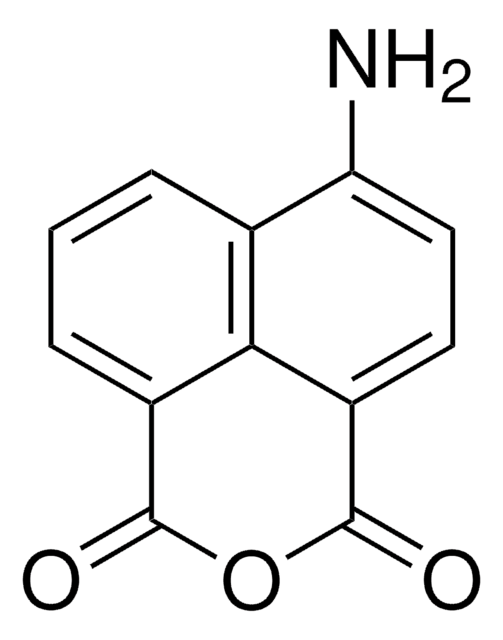246816
1,6-Hexanediol diacrylate
technical grade, 80%
Synonym(s):
Hexamethylene glycol diacrylate, Hexane-1,6-diyl diacrylate, HDODA
About This Item
Recommended Products
grade
technical grade
Quality Level
vapor density
>1 (vs air)
vapor pressure
<0.01 mmHg ( 20 °C)
Assay
80%
form
liquid
contains
100 ppm monomethyl ether hydroquinone as inhibitor
refractive index
n20/D 1.456 (lit.)
density
1.01 g/mL at 25 °C (lit.)
SMILES string
C=CC(=O)OCCCCCCOC(=O)C=C
InChI
1S/C12H18O4/c1-3-11(13)15-9-7-5-6-8-10-16-12(14)4-2/h3-4H,1-2,5-10H2
InChI key
FIHBHSQYSYVZQE-UHFFFAOYSA-N
Related Categories
General description
Application
- A monomer for the synthesis of poly(1,6-hexanediol diacrylate) (PHDA)-based polymer microspheres and bifunctional microcapsules. The resulting PHDA-based polymer embedded with TiO2 nanoparticles finds uses in various potential applications in fields such as sensing, drug delivery, and photonics.
- A sensitizer in the UV-curable inks commonly used in the printing industry.
- A cross-linking agent in conjunction with a photocatalytic system to modify cellulose material. The resulting crosslinked cellulose material finds uses in various potential applications such as paper manufacturing, textiles, and biomedical devices.
- A monomer in the synthesis of polyurethane acrylate (PUA) which is used to produce polymer electrolytes for use in lithium batteries.
- A resin (copolymer of 1,6-hexanediol diacrylate and styrene) by suspension polymerization, which is applicable in the preparation of hydrophobic peptide sequences.
- Monodispersed poly(HDDA)/TiO2 microspheres, applicable in the degradation of methylene blue.
Signal Word
Warning
Hazard Statements
Precautionary Statements
Hazard Classifications
Aquatic Acute 1 - Aquatic Chronic 2 - Eye Irrit. 2 - Skin Irrit. 2 - Skin Sens. 1
Storage Class Code
10 - Combustible liquids
WGK
WGK 2
Flash Point(F)
235.4 °F - closed cup
Flash Point(C)
113 °C - closed cup
Personal Protective Equipment
Choose from one of the most recent versions:
Certificates of Analysis (COA)
Don't see the Right Version?
If you require a particular version, you can look up a specific certificate by the Lot or Batch number.
Already Own This Product?
Find documentation for the products that you have recently purchased in the Document Library.
Customers Also Viewed
Our team of scientists has experience in all areas of research including Life Science, Material Science, Chemical Synthesis, Chromatography, Analytical and many others.
Contact Technical Service














